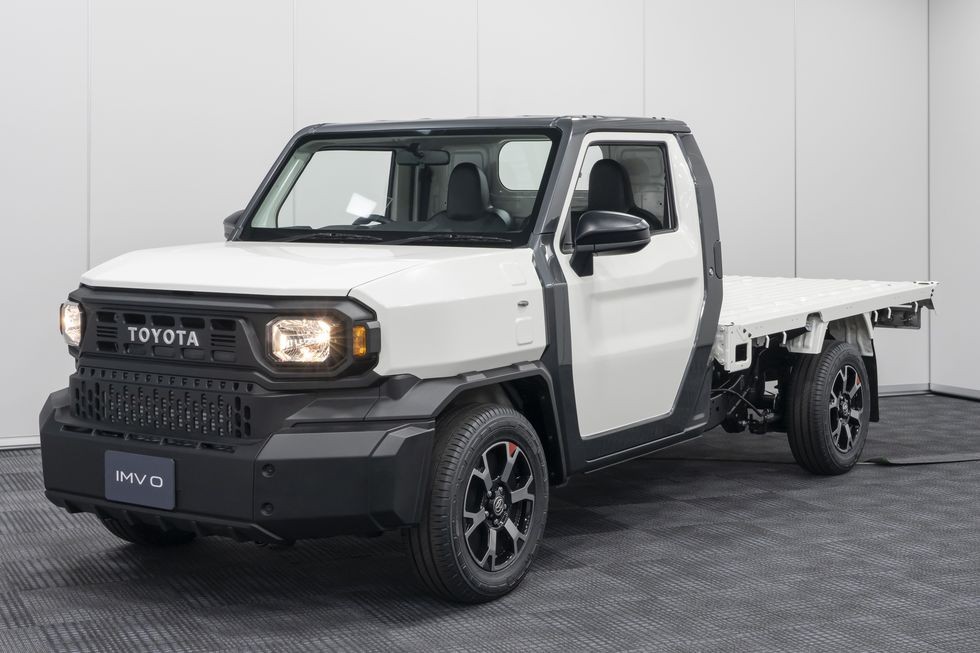The dream of owning a brand-new pickup truck without breaking the bank is becoming increasingly distant for many in the United States. While automakers continue to roll out impressive trucks packed with features and power, the price tags often soar far beyond the reach of the average consumer. This week, we delve into why the vision of an affordable, no-frills pickup, especially an electric one from a company like Tesla, remains stubbornly out of reach.
One reader, Juan TT, reached out expressing frustration over the lack of budget-friendly truck options. He highlights the Ford Maverick as the current “cheapest” option, yet even its base model pushes past the $26,000 mark after fees. Juan, a Nissan fan looking to upgrade his well-loved but aging Frontier, yearns for a simple, reliable work truck without the hefty price tag of modern pickups. He asks a pertinent question: “Why can’t people have a cheap truck that’s well built like the rest of the world?”
The answer, unfortunately, isn’t simple, but it boils down to a complex interplay of factors that make building a truly affordable pickup, particularly in the EV space, a significant challenge in the American market.
As we explored in response to Juan’s query, the landscape for new, budget-conscious pickups is sparse. The Ford Maverick and Hyundai Santa Cruz represent the lower end of the spectrum, hovering around the $26,000-$28,000 mark. Stepping up to mid-size or full-size trucks quickly escalates costs into the $30,000 to $40,000+ range.
The Toyota IMV 0, showcased in the original article, serves as a stark reminder of what’s possible elsewhere. This bare-bones pickup, available overseas for around $10,000 USD equivalent, embodies the concept of a truly affordable work truck. It’s basic, yes, with a modest engine, manual transmission, and minimal frills. But for many, that’s precisely the appeal. It fulfills the fundamental need for utility without unnecessary extravagance.
However, the reality is that a truck like the IMV 0 faces insurmountable obstacles in the US market. Stringent safety regulations, demanding EPA emission standards, and high production costs make it economically unviable to produce and sell such a vehicle at that price point domestically. These regulations, while crucial for safety and environmental protection, significantly inflate the cost of manufacturing vehicles for the US market.
This brings us to the electric vehicle realm and the potential for a Tesla Pickup. While Tesla has disrupted the automotive industry with its innovative technology and electric powertrains, the prospect of an “affordable” Tesla pickup, akin to the IMV 0 in spirit, remains elusive.
The Tesla Cybertruck, while generating immense buzz and showcasing futuristic design, certainly doesn’t fit the bill of an affordable work truck. Its stainless steel exoskeleton, advanced technology, and focus on performance place it firmly in a premium price bracket. It caters to a different segment of the market, prioritizing innovation and statement-making design over basic utility and affordability.
Could Tesla, renowned for its engineering prowess, crack the code and deliver a truly affordable electric pickup? The original article touched upon the hope that cheaper tech and imported components might pave the way for basic EV pickups. However, the economic realities and regulatory hurdles remain significant.
Producing an EV at a price point comparable to the aspirational $10,000 IMV 0, or even under $25,000, is a monumental challenge. Battery technology, a core component of EVs, is still relatively expensive. Meeting US safety and emission standards with a low-cost EV pickup adds further complexity and expense.
While Tesla has hinted at future models aimed at broader markets, the focus has primarily been on sedans and SUVs. The “Model 2,” often discussed as a potential entry-level Tesla, is anticipated to be a car, not a pickup truck. Even if Tesla were to consider a more affordable pickup, it would likely still land in a higher price bracket than the truly basic, budget-oriented trucks desired by consumers like Juan.
The desire for an affordable Tesla pickup, or any affordable electric pickup for that matter, reflects a broader yearning for accessible and practical vehicles. While the automotive industry continues to innovate and electrify, the challenge of delivering truly budget-friendly options, especially in the pickup segment, persists. Until production costs decrease significantly and regulatory burdens are potentially reassessed for basic utility vehicles, the dream of a cheap and cheerful Tesla pickup, or its equivalent, may remain just that – a dream for many hardworking individuals.
The market may need to wait for further technological advancements and shifts in economic factors before the vision of an affordable Tesla pickup, or a competitor’s equivalent, becomes a tangible reality on American roads.
